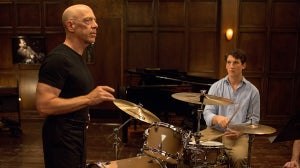
Christopher Reeve was picked out of obscurity to become Superman – and over time, proved that this title was more than just the name of his iconic character.
DC Studios documentary Super/Man: The Christopher Reeve Story is only partially about how the actor became the first big-screen Kal-El. Filmmakers Ian Bonhôte and Peter Ettedgui were given unprecedented access to the Reeve family archives to explore how his near-death experience and subsequent paralysis transformed the public perception of living with disability – and the lengths we still need to go to improve this.
It’s this last point the documentary wishes to stress, as even though the Reeve Foundation has continued to help millions since the actor’s death in 2004, having a world-famous A-lister making their disability visible has done very little to improve representation onscreen.
As Bonhôte explained to Zavvi: “We previously made a film about the Paralympic movement, and in sports, positive representation of athletes with disabilities has increased significantly – Paralympians have done more for how disabled people are perceived than film. It’s only in the last five to ten years that I recall even seeing a TV series where a disabled character was given a proper arc, and not just there as a token gesture, but it’s been harder for the film industry to embrace that.
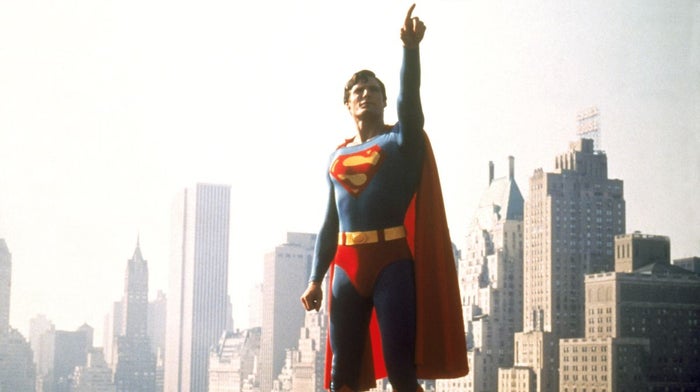
Warner Bros. Pictures
“These films cost a lot of money, and there’s a perception that if you don’t make someone look “perfect”, people won’t identify with it, and I couldn’t disagree more. Nobody is perfect, we are all on the spectrum of some mental, physical or emotional disability of some sort, but Chris was the last celebrity to truly push that boundary on our screens.
“He was also one of the first people that audiences saw on screens with a disability. Because he was identified with Superman, this indestructible, perfect man, seeing him embracing this new way of life from the jaws of death was very inspiring.”
The director duo’s previous film was Rising Phoenix, a 2020 Netflix documentary about the history of the Paralympic Games. This is the main reason why they were approached to make a film about Reeve, but they said yes as they realised this would allow them to dabble in a genre that couldn’t be further away documentary filmmaking.

Warner Bros. Pictures
"We understood that we were asked to make this because it was connected to our previous work in its themes”, Ettedgui explained. “But it allowed us to make something epic in a different way – it was our chance to make a real superhero movie, and we embarked on this like a true Superman film, which we’d never have been able to make otherwise.”
The pair have made various retrospective documentaries before, including the BAFTA nominated documentary McQueen, where they had to exclusively rely on archive footage to recount the career of fashion designer Alexander McQueen. The main challenge with this approach is finding enough recorded material to cover each crucial aspect of the subject’s life – an obstacle they were surprised they didn’t face this time.
Bonhôte said: “If you’re making a retrospective documentary where the subject you’re trying to cover is no longer with us, then you must rely on archive materials as the backbone. What stood out the most for us is how lucky we were to have so much archive material of Chris.
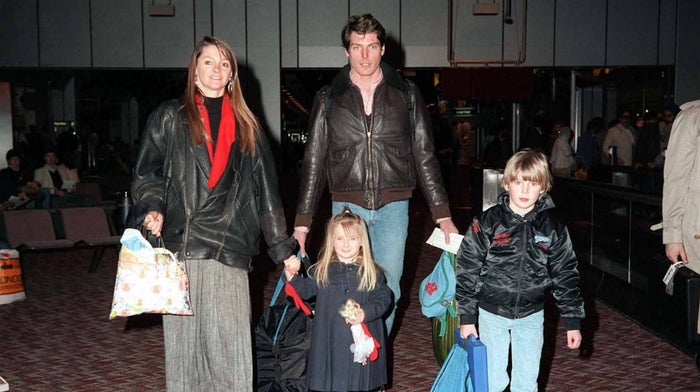
Warner Bros. Pictures
“There were lots of YouTube interviews with Chris, some of which his children had never seen, but what was special for us was when we found that Matthew Reeve had shot lots of home movies of his dad. He helped us track down those rushes and we had boxes and boxes of tapes that came to our office which we digitised.
“Chris had also bought a camera when he left the UK to come to the US, so he was always filming himself and sending videos back to the kids, making sure he always kept in touch with them. That video camera filmed everything, even after the accident, when his family picked it up – it was really intimate footage that showed what was happening behind the curtain.”
With the Reeve family picking up their father’s legacy as disability advocates, the directors were given another gift rarely afforded to filmmakers making celebrity biopics: the freedom to discuss all aspects of Reeve’s life, with no topic off limits.
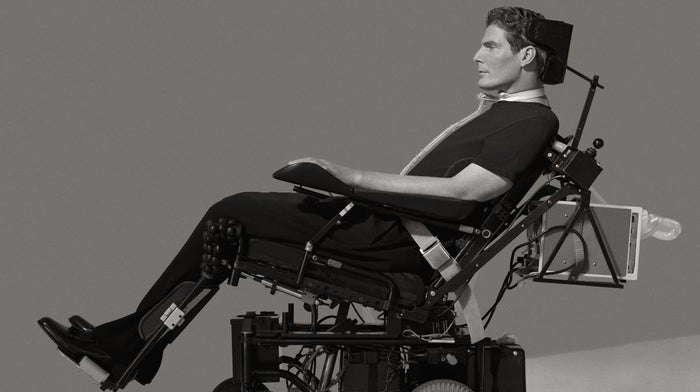
Warner Bros. Pictures
“As filmmakers, it’s really important for us to establish a sense of trust, and possibly even friendship, with your interviewees, in this case the three kids”, Ettedgui added. “We want to make sure they’re in a position where they feel safe to talk and express their most intimate memories of their father, but also allow us to use the most intimate moments from the mountains of home movies from their archive.
“They always wanted us to make the film that we wanted to make, which is music to our ears, but we’d always talk with them about our plans for the film, so they had a firm understanding of the direction we wanted to steer it in. It meant that when it came time to record the interviews, nothing was off limits, and they felt safer to revisit their darker memories.”
This was the same approach they used to get celebrity talking heads, including Glenn Close, Jeff Daniels and Susan Sarandon, to speak to them about their friend. The directors were adamant that they “didn’t want to make a red-carpet film”, only ever bringing in famous faces where they could add further depth to our understanding of Reeve.
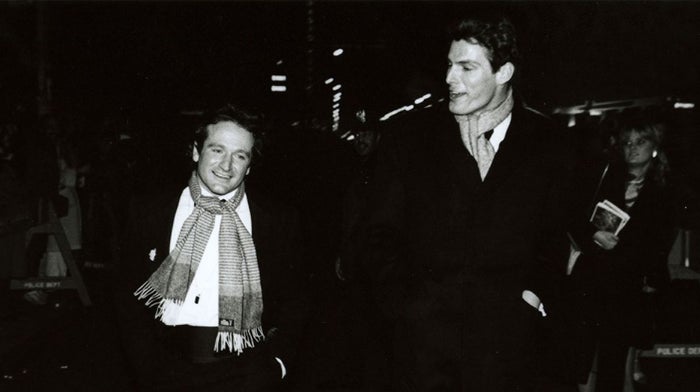
Warner Bros. Pictures
“Plus, there was no scandal in his life, nothing people would be scared about touching, so everybody we approached wanted to talk to us, which isn’t usually the case with a celebrity documentary”, laughed Bonhôte. “But their involvement was also thanks to the kids, who were very generous with their time – they knew these people, even if they might be less in touch with them now, which meant we had that automatic stamp of approval when we reached out to them for interviews.
“But even when we reached out to people without their help, nobody ever asked us “is the family involved?”, which we’ve had a lot of in the past. It’s refreshing as it shows the type of person Chris was – he was a great friend people wanted to share their memories of.”
The only controversy that does arise is the fallout from a 2000 Superbowl commercial for Nuveen Investments, which used what was groundbreaking CGI at the time to depict Reeve getting out of his wheelchair to walk again. He chose to star in the advert to highlight his research into spinal cord regeneration and defended his participation afterwards in the face of an outcry from disability rights groups.
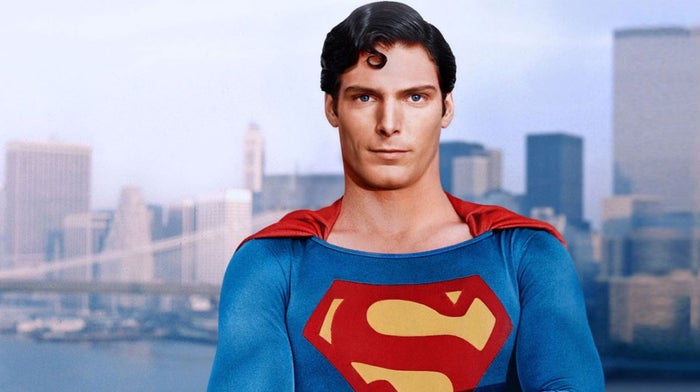
Warner Bros. Pictures
Ettedgui said: “It caused a great deal of offence, but Chris saw it as the ultimate representation of the moonshot he was aiming for – that science could help people regain the power to walk again, but the way this advert conveyed it perhaps wasn’t sensitive. Many disabled people just want to lead healthy lives and be accepted for who they are and find the idea that they need to be “fixed” in such a way distasteful.
“But I think that when you look at his life as a whole, Chris’s legacy is in galvanising science and medicine not just to look for cures, but to find more effective treatments that can give people a better quality of life.”
“It’s an interesting argument with no winner”, Bonhôte concluded. “As both things should be done; people who want to walk again should fight for that, and those who just want to improve their quality of life whilst living with a disability should also be able to have that.
“Since his passing, some have simplified Chris’ legacy to merely fighting to make disabled people walk again. But he had a far bigger impact when it came to approving the lives of millions.”
Super/Man: The Christopher Reeve Story is released in UK cinemas on Friday, 1st November.







